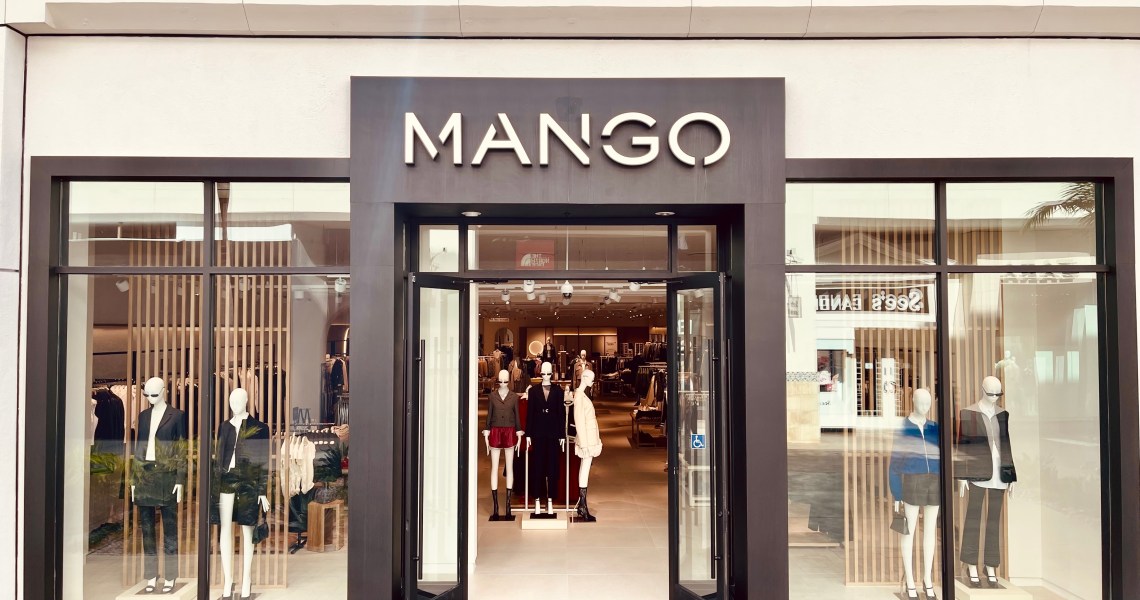Fashion retailer Mango has been creating machine learning platforms since 2018. This year, the retailer is prioritizing the use of AI to enhance the capabilities of its workforce as it anticipates a market shift toward use of the technology.
Currently, Mango has 15 different digital intelligence platforms, covering everything from pricing to personalization. Moving forward, Mango will use the technology to facilitate better in-house efficiencies and creativity through multiple tools, as it aims to outdo super-fast fashion companies like Shein and Temu.
The new platforms include Midas, used by the brand to strategically price products on its site and in its stores; Gaudí, for recommending products to customers; Iris, a chatbot for improved customer service; Inspire, a generative content and co-creation AI platform that can be leveraged by the design and product teams; and Lisa, a conversational platform used by different internal teams, including design, store and logistics center workers, as well as company partners managing data and inventory.
“We see digital intelligence as an extended intelligence, meaning a technology that acts as a co-pilot for our employees and stakeholders,” said Jordi Álex Moreno, chief information technology officer at Mango. “For this reason, these AI platforms help to extend their capabilities and improve productivity in daily tasks. They also help identify opportunities at different points in the value chain and advance our operations.”
In addition, the company is investing an undisclosed sum into radio frequency identification (RFID) technology for real-time control and traceability of its products, from the manufacturer to logistics centers and to the point of sale. “We have implemented one of the most complex capabilities in the fashion industry called the order management system,” said Moreno. “It’s a single system of commercial stock that is available in real-time. Our process focuses on the digitization of the life cycle of the industry’s main informational assets: customers, points of sale, stock and products.”
On March 11, Mango reported record annual sales of €3.1 billion ($3.39 billion) for 2023, largely driven by its expansion into the U.S. The retailer is planning to open 30 more U.S. stores by 2026. The full-year report also revealed that Mango’s Midas platform helped the company raise prices for some of its key categories, including dresses, which also drove sales. Midas leverages AI to inform prices based on demand. The company’s average prices in the U.S. grew 46% for the 2024 spring collection, compared to two years ago, according to the retail intelligence platform Edited.
Companies using similar AI pricing platforms include Skims, Staud and Faherty, all of which use Particl. Other fashion companies like Zara and H&M are also relying on data to determine pricing and support design direction. While some companies have shied away from AI-led design, Mango is leaning into the practice.
“We are experimenting with different use cases of digital intelligence, specifically in the product development process,” said Moreno. “Generative AI aims to assist in various stages of the creation process of our collections, from trend analysis — enabling the synthesis of large volumes of information — to the creative stage of ideation and product design, prints and textures, as well as in the analysis of feedback from our customers.”
Rita Sheth, CEO of AI design company Mercury Dasha, said that both machine learning and AI can support the fashion design process in meaningful ways. “Digital intelligence analytics aid in understanding the market, trends and consumer preferences, and generative AI directly contributes to the creative process by generating innovative fashion designs,” she said.
According to Moreno, Mango’s designers rely on its current AI models for trend analysis, ideation and product design. However, the designers themselves are “fundamental components of the company, bringing the required sensitivity to each creation,” he said.
Moving forward, staying up-to-date on new technologies will be crucial for retailers, he said. “Digitization, process optimization, personalized experience and service, and the integration of new technologies such as digital Intelligence, machine learning, cognitive conversational capabilities and generative algorithms, will emerge as one of the main challenges in the retail sector,” he said.
He added, “This challenge also represents an opportunity that can accelerate our growth and enhance the capabilities of our employees. … Generative AI will be part of the future of all business processes and will, in turn, be a challenge for all professionals as it is a tool from which they can make the most by introducing it into their daily operations.”




